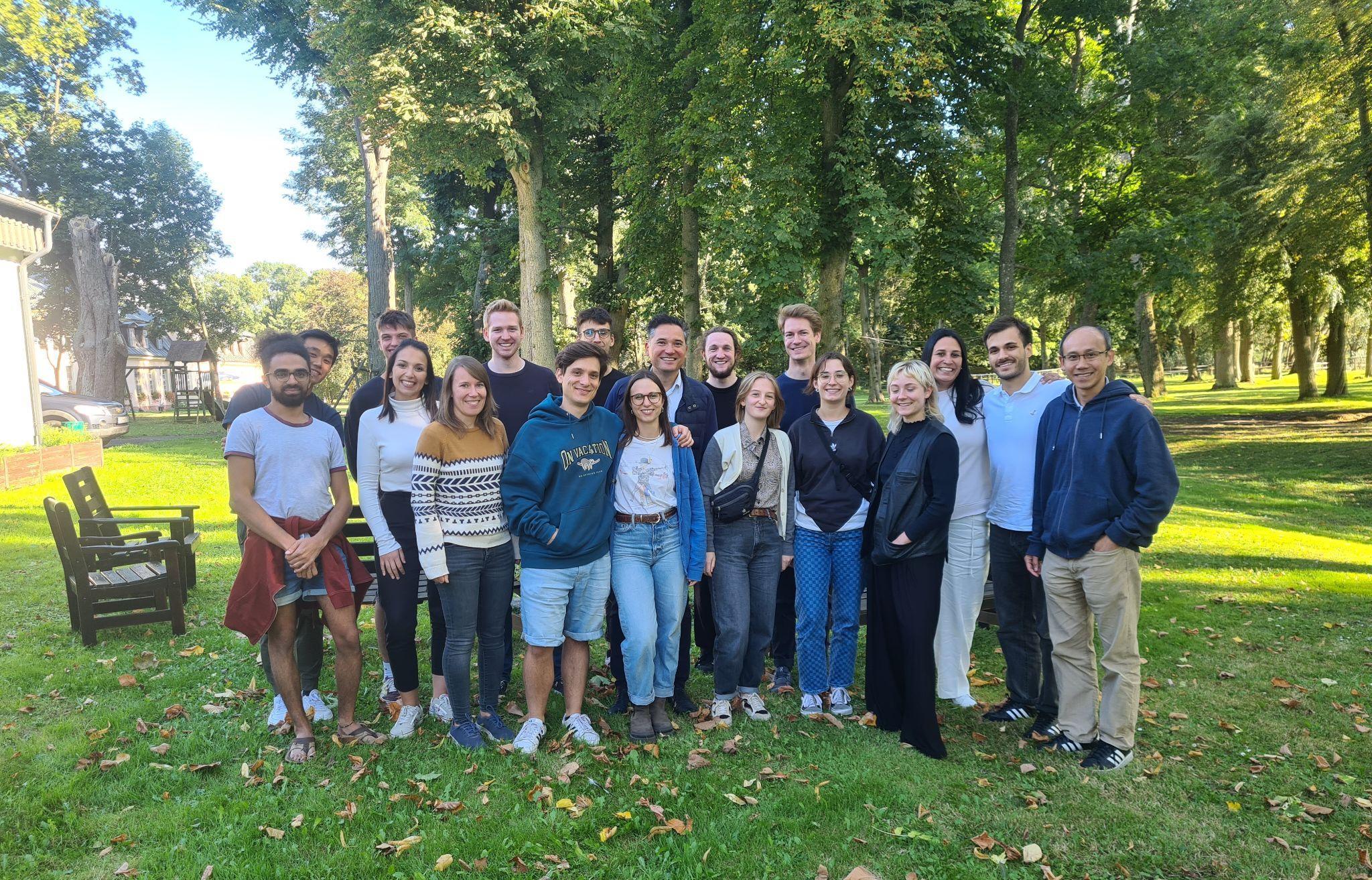Today was the last day of my internship at the Clinical Neurotechnology Lab of Surjo R. Soekadar at Charité, under the supervision of Jan Zerfowski. My task was to classify rock, paper, scissors hand movements from brain data recorded with novel optically pumped magnetometers (OPMs). I tried out multiple classification methods and, for the first time, worked on source reconstruction, which is used to estimate the brain sources generating the signals of interest.
The project alone was very compelling and quite challenging. However, aside from the classification task, my main takeaway from the internship was the time I spent interacting with all the lab members. Surjo was kind enough to invite me to various events, be it the lab retreat in Poland, an ethics conference about neurotechnologies the lab was organizing, or a boat tour with different neuroscience labs in Berlin. All of these experiences have taught me to open up my social circles to more people in the future, as I saw how much I appreciated and benefited from Surjo’s invitations.

Another significant takeaway was learning to take one step at a time and to allocate sufficient time for completing tasks. My time management skills had always required refinement. I never fully recognized their significance as I always pulled through tough times with some flavor of stress-induced heavy work. However, I’ve come to understand that quality outcomes need time to flourish. To achieve a result I’m proud of, I must not only allocate enough time for task completion but also allow for a period of reflection and refinement, enabling me to enhance my work further. A prime example of this learning was my internship report, which went through numerous revisions before it reached its final, polished form. This (rather obvious) revelation on its own was enough of a reason to say I am very glad to have done my internship here in Berlin.
All things considered, I really enjoyed my time in the lab and wanted to continue working here. So now, I will be writing my Neuro-Cognitive Psychology master’s thesis on closed-loop amplitude-modulated transcranial Alternating Current Stimulation (CLAM tACS) to target motor cortical oscillations. I view this project as an opportunity to apply all the takeaways I’ve mentioned, and I can’t wait to start working on it!
Neuroengineering Symposium
After I wrote this post, I also got the chance to present my findings in the Neuroengineering Symposium. It is a scientific symposium for Neuroengineering students at the Technical University of Munich and this year it was in collaboration with Georgetown University. We had people coming over from Washington just for this event.
As part of the symposium, each student could present their most recent findings in a poster session. Using my recent learnings about allocating enough time to produce high-quality results, I actually spent quite some time with a few iterations on my poster, even if I started working on it quite late again.
I presented my poster and have seen that people were very interested in the OPMs in general. Maybe it’s the novel technology or the Mickey Mouse hands I used in my poster but I got the 2nd best poster award (the first one going to my hard-working friend Alexandra Samoylova with her great poster)! I also want to attribute part of this to my learnings in my UX design job. I was thinking of the target group for the poster, what they would be interested in knowing and how to best tell the story of my research. Well, I guess that is enough build up for me to introduce my poster to you. I hope you enjoy it as much as I did when I was preparing it.